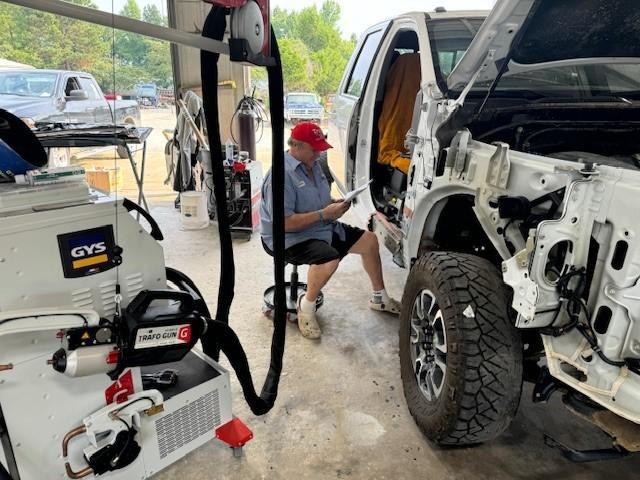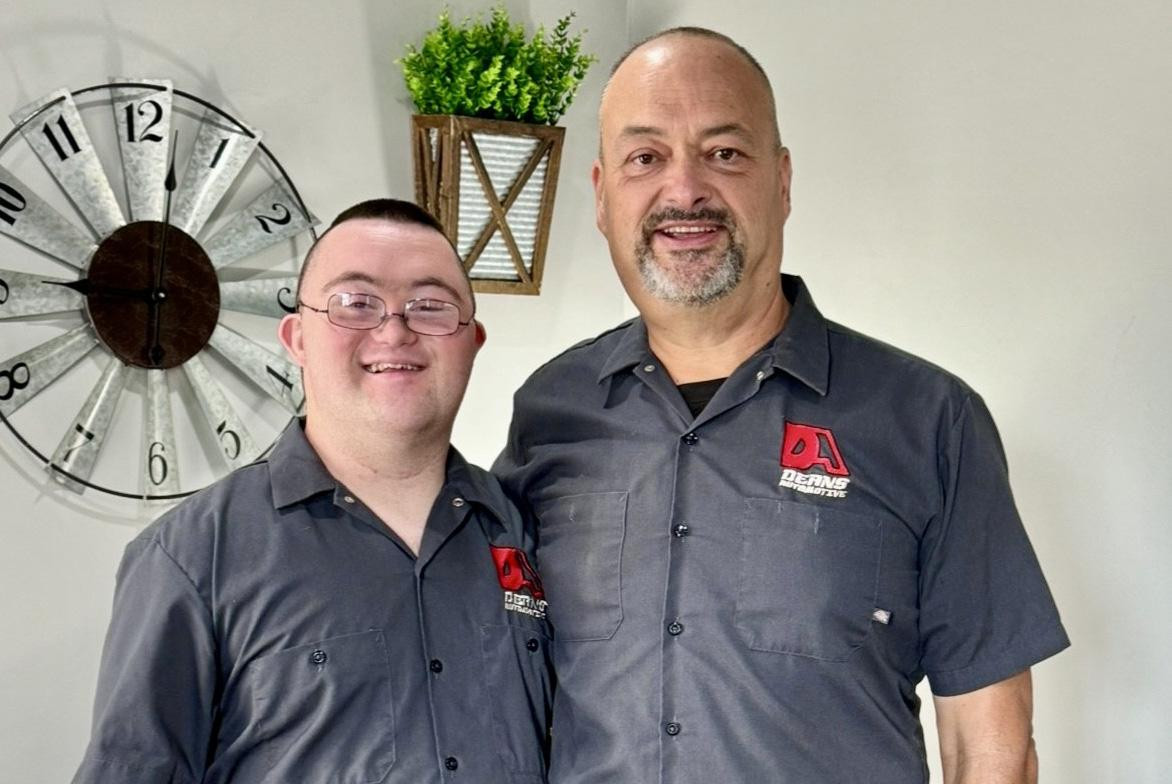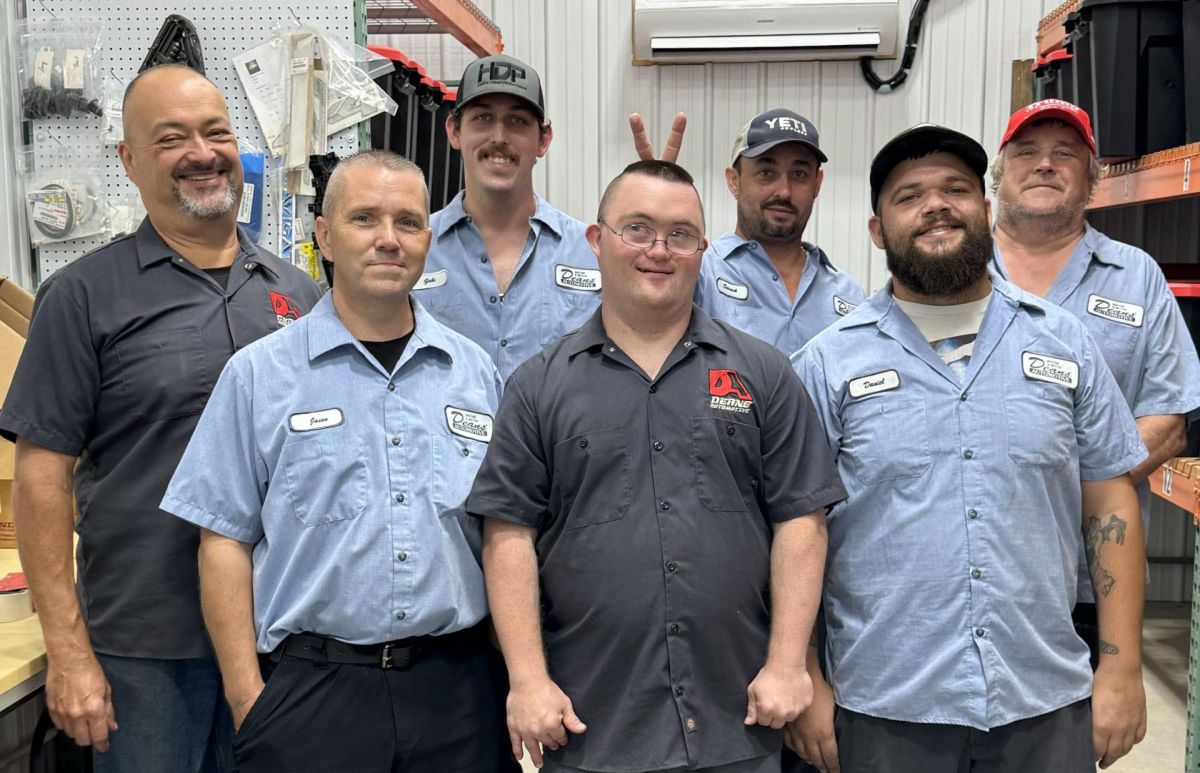Mitch Dean has made a serious go of collision repair right alongside fatherhood, marriage and service to his community.
His shop, Dean’s Automotive, serves Cheraw, SC, and its surrounding population. There’s just one other shop in the area, and Dean, a quietly confident 58-year-old, said he doesn’t view the business as competition, but more as a source for collaboration.
That idea tracks with the rest of his story and philosophies, which together paint a picture of how one private shop owner has built and sustained life in a small town and given back to his industry.
A Beginning in Collision Work
Mitch’s father, Wayne Dean, made a name for himself rebuilding, showing and selling Ford trucks; Mitch was attending car shows and painting vehicles at a young age.
“He actually had me in the shop when I was about 11 and painting my first car by myself when I was about 14. I graduated high school, went off to college, graduated from the College of Charleston in ‘89, came back home, and my dad had never done any work for the public,” Mitch recalled to Autobody News.
 A vehicle undergoes work at Dean’s Automotive.
A vehicle undergoes work at Dean’s Automotive.
He returned home with an English degree and an abandoned bid to become a dentist. He had gone so far as to take the Dental Admission Test.
“I was actually filling out the [dental school] application, and I was like, ‘I just can't stomach four more years of this,’” he said.
So, collision work it’s been since the early 1990s.
From the beginning, Mitch knew his father had built a solid reputation on good work, and he thought he could base his own operations on that.
“Folks around the area knew his name and knew that when he built a car he stood behind it. When he had a car built, nine times out of 10, he had it sold before he ever finished building it,” Mitch said. “When I started on my own, I wanted to, if possible, build on his reputation and build on that good name that he had spent so much time building himself.”
Finding a Network
Mitch’s reputation, like his father’s, did grow. But as a professional, he sometimes felt thwarted and isolated. He attended the Masters School of Autobody Management, then located in California, but he found that trying to absorb the wealth of information was like “drinking from a fire hydrant.”
Attempts to implement the education eluded him, and years passed. And isolation can be hard to overcome in a small town like Cheraw, population 5,000, where more metro areas are a couple of hours away.
But then, nearly a decade ago, he found the shop owners that now make up the Carolinas Collision Association, and he started gleaning knowledge from that group. Its members talked nuts and bolts on things like how to collect payment and communicating with insurance companies.
“They just kind of rekindled the fire and the passion in me for it, and I've learned more because of the networking with these guys -- I've learned more in the past five years than I did the previous 25 years,” he said. “I was on an island the whole time before I met those guys.”
Paced Growth
Mitch has made his living in a “blue collar kind of town” on everyday driving cars. At this point, he doesn’t advertise, and although he says he’s not high-production, he keeps a four- to six-week backlog of work.
He’s doing his part to bring along the next generation of technicians with two recent hires from Florence-Darlington Technical College, and his own son, Jesse, works in the shop part time.
 Dean and his son, Jesse, who works in the shop part time.
Dean and his son, Jesse, who works in the shop part time.
A steady pace that’s not blazing is fine by Mitch, and he conveys that to his employees.
“I've told my guys that we just come and work steady. I don't want you coming in working like you're putting out a fire,” he said. “We average about seven cars a week, and that's fine by me.”
The work has made a lasting impression on customers, earning the shop a coveted A+ Better Business Bureau rating.
It’s been important for Mitch to leave room in his life for family and church, and that mentality has allowed him to be present for his pharmacist wife, Billie Dean, and their three children.
“From the very beginning I determined that I was going to try to be involved in my kids’ ball games, dancing, whatever it was,” he said.
And he was.
“My wife and I did double duty running to different ball fields and whatnot, but I determined a long time ago that Wednesdays I was closing at 5 p.m., regardless, to go get ready for church,” he said. “I just made that a commitment early on and stuck with it. And it's never been a problem at all.”
A couple of years ago, the shop cut back to four and a half days a week, too, closing at noon on Fridays for “a little bit more breathing room.”
Mitch advises shop owners at earlier stages in their careers not to take on an overwhelming amount of work. Building gradually, he said, is key to longevity.
When it comes to the longevity of his own business, he said he’s not opposed to an exit plan, but he’d like to see his shop grow.
“If I sell it one day, I'm hoping that whoever buys it will take it to another level or the next level, so to speak, and just build on it because I think there's still a lot of upside in this industry,” he said.













Elizabeth Crumbly